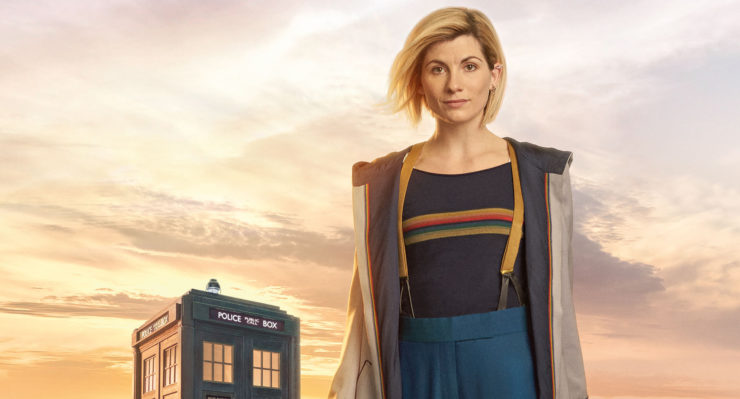I miss Doctor Who. There was a time when I watched it fervently, reverently, passionately. It was something I put on when I was stressed or overwhelmed or needed to be reminded of the good things in life. The relationship wasn’t perfect, but it was powerful and affirming.
Until suddenly it wasn’t.
The show twisted into something unrecognizable and unpleasant. And so I abandoned Doctor Who just as it had abandoned me.
If you asked me in 2016 if I would ever watch Doctor Who again, I probably would’ve shaken my head and sighed. The chances of the show making the kind of changes necessary to pull me back seemed slim to none. But here we are, fall 2018, and I am so excited about the Season 11 premiere that I can barely stand it.
Doctor Who fell into my lap during an especially rough patch in my life. My mid-twenties were riddled with depression, debt, and anxiety attacks. I was trapped in jobs I hated but was too poor to quit. My personal life was in shambles, my social life virtually non-existent. And then a friend introduced me to an odd and extremely British-sounding show about a shapeshifting dude in a flying blue box. From the moment Nine told Rose to “Run!” I was hooked. I’m not suggesting the show cured all my ills, but it did make life a little brighter. Eventually I dug my way out of my hellhole, and the Doctor was by my side (and tattooed on my back and shoulder) through all of it.
A direct line can be drawn between Doctor Who and Torchwood and the person I am today. They reintroduced me back to science fiction and fantasy after I’d been driven away as a child. My Who obsession landed me my first writing gig at Tor.com, and my very first post was a news item about Torchwood. No matter how troubled my feelings toward the show are, it will always hold a special place in my heart.
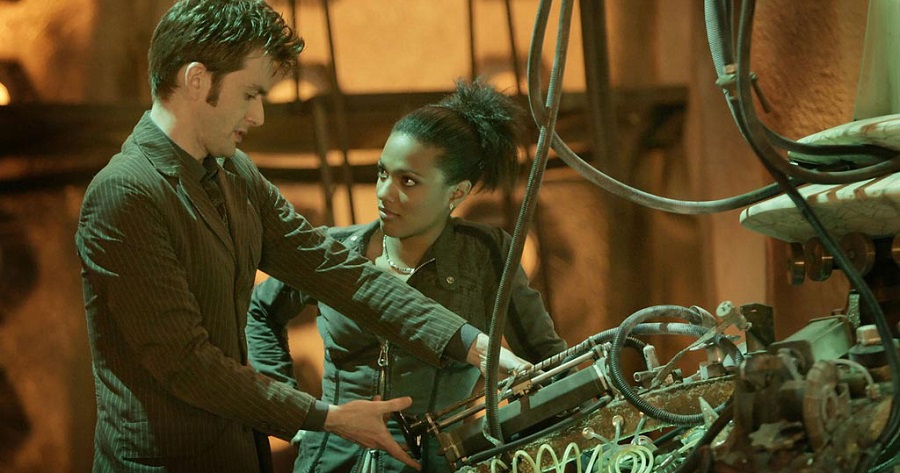
With the takeover by Steven Moffat in 2010, my relationship with the Doctor shifted dramatically. As much as I loved Doctor Who, I wasn’t blinkered to its myriad problems. Trouble was, the annoying but tolerable issues were magnified into something unbearable by Moffat’s numerous faults as showrunner. Under Moffat, seasons went from episodic romps loosely knitted together by repeating themes—think “Bad Wolf” Easter eggs throughout the first season—to Lost-style mystery box seasons bogged down in an increasingly convoluted and grimdark mythology.
River Song, Cybermen, Daleks, and the Master work best when used sparingly, but Moffat dragged them out of the toy box so often that they lost their appeal. Even the Doctor suffered from too much focus. Doctor Who is a show that flourishes when it cares more about the people the Doctor helps than the Doctor. The Doctor is much more interesting as a character who drops into other people’s stories than when everyone else exists only to serve the Doctor’s narrative.
Worse, women went from equals with their own vibrant lives to codependent followers. So long to the fierce and multi-layered Donna Noble, hello Amy Pond, also known as both “The Girl Who Waited” and “The Legs.” Poor Clara was reduced to “an impossible girl: a mystery wrapped in an enigma squeezed into a skirt just a little bit too…tight.” Ew and ugh.
What Moffat offered me as showrunner was nothing I wanted or enjoyed. His seeming disdain for how fans interpreted the series, for critiques of his own biases and bigotries, and for the depth the show was capable of became a virus that infected everything. I have never been one to shy away from dropping shows that I no longer like, but I held onto Doctor Who longer than I should have. I finally tapped out after the frustrating penultimate episode of Season 6, “The Wedding of River Song.” Reductive, repetitive, and boring, the episode encapsulated everything I couldn’t stand about Moffat’s storytelling.
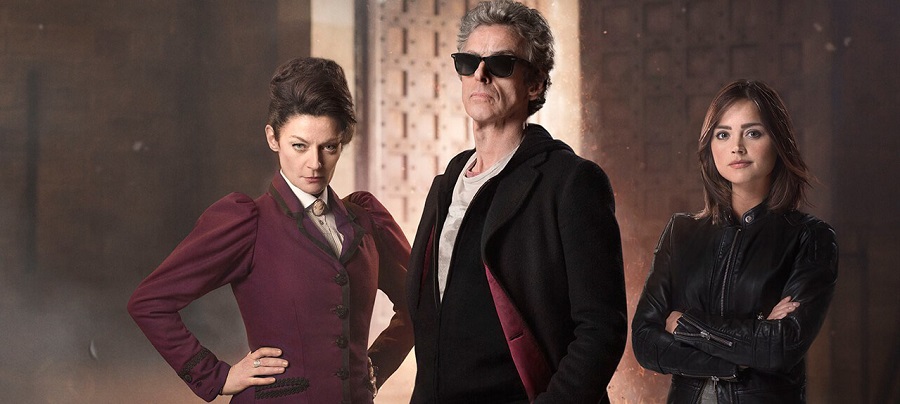
Although Moffat drove me away from Doctor Who, other factors kept me from coming back. A not insignificant chunk of my exhaustion came from the frustratingly limited diversity and the frequently poor treatment of characters of color—see Martha and Bill, plus the weirdness around the few major interracial relationships.
Prior to Season 11 there had never been an Asian or South Asian companion despite the fact that people of South Asian ancestry make up nearly 7% of the population of England and Wales, according to the most recent census. Islam is the second largest religion in the UK, yet Muslims are also largely absent from the show, and certainly from the role of companion.
Buy the Book
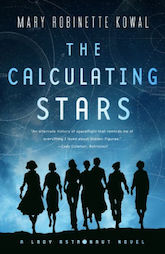

The Calculating Stars
Moffat said it was hard to cast diversely without impinging on historical accuracy, a notion that is patently false and wholly ignorant of actual history. To be fair, Moffat also admitted this claim was nonsense and rooted in a white-centric view of history and acknowledged that the show needed to do better…then made absolutely no changes. And don’t even get me started on frequent Moffat collaborator and Who writer Mark Gatiss who infamously whined about diversity initiatives ruining historical accuracy because they cast a Black man as a soldier on an episode about Queen Victoria’s army battling Ice Warriors on Mars. Not to mention Moffat’s asinine declarations that we couldn’t have a woman Doctor because he “didn’t feel enough people wanted it” and “This isn’t a show exclusively for progressive liberals; this is also for people who voted Brexit.”
Setting aside the hugely problematic social and cultural issues, this was a show that could create a vast universe across space and time filled with a multitude of alien creatures but whose imagination ground to an utter halt at the mere thought of Doctor regenerating into anything other than a cishet white man. Why can’t we have a trans or disabled companion? Why can’t the Doctor be a queer woman of color?
Do you know what it’s like to be told by someone in a position of power that you don’t belong here? That you are an aberration, a glitch in the matrix, that including you would be so inaccurate that it would collapse the narrative structure of a fictional television show that features a frakking alien traveling through time in a police box? Hearing that message all the time from pop culture is hard enough, but to get it from my favorite show was heartbreaking.
A decade ago, when there were far fewer shows featuring intersectionally diverse casts, I would’ve put up with Doctor Who being intensely white and cishet (and ableist and misogynistic). Nowadays, however, there are enough options featuring better representation that replacing the Doctor was pretty easy. So that’s what I did.
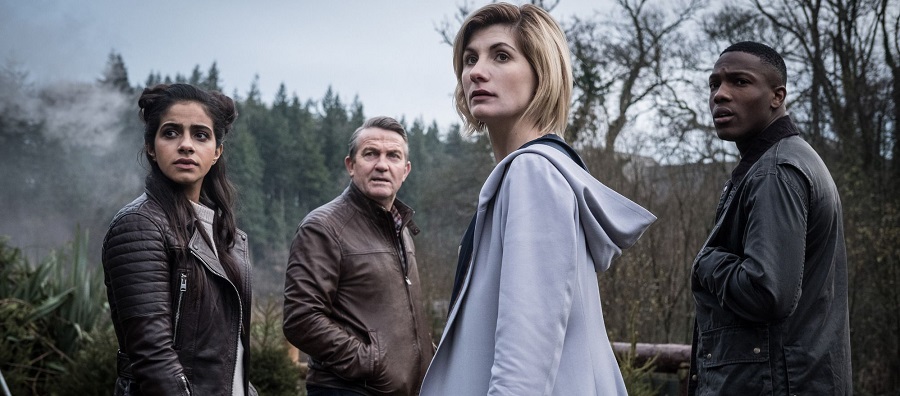
Cut to the Jodie Whittaker announcement in July, 2017. For the first time in years, I watched the Christmas special—live, no less. To give credit where credit is due, Moffat’s swan song exceeded my (very low) expectations and Peter Capaldi was as excellent as I hoped he’d be. Whittaker had almost no screen time, but what she did get left me with a smile a mile wide.
On top of her pitch-perfect casting, Thirteen will also be joined by three new companions, one a Black man and another a woman of Indian descent. Plus, the Season 11 writers’ room has added a Black woman, white woman, and a man of Indian descent. Several women will also be directing. New showrunner Chris Chibnall proclaimed that the renovated show will tell “stories that resonate with the world we’re living in now,” and will “be the most accessible, inclusive, diverse season” ever produced.
These changes go beyond tokenism and into real diversity work. The show isn’t just sticking a woman in the titular role and patting themselves on the back. Diversity can’t just be about quotas. It must be about inclusion and representation in front of and behind the camera. Marginalized people need to be able to tell our own stories and speak directly to our communities. The majority already gets to do that, and now that conversation needs to happen across the board. The show still has a lot of work to do, both in terms of undoing the status quo of harmful tropes and in laying strong groundwork for later casts and crews. Yet, somewhat surprisingly, I feel hopeful for the show’s future.
And isn’t hope what the show is really all about? Doctor Who is a story about the hope for a better tomorrow, faith in your companions, and trust that you’re doing the right thing. It’s about a hero using their immense powers responsibly and in order to benefit those who need it the most. The Doctor creates space for the marginalized to stand up and speak out, to fight for their rights against those who would silence or sideline them. For too long, that ideal was lost to puzzle boxes, bloated mythology, and trope-y characters…but with the appearance of each new Thirteenth Doctor trailer, my hope grows a little more.
It’s not often that you find your way back to something you loved and lost. At first, Doctor Who was a touchstone during my trials and hardships. Then it became a cornerstone in the foundation of the new life I was building. For a long time I left it encased in a wall, hidden in the basement of my subconscious, untouched and unwanted. Yet here I stand, sledgehammer in hand, putting a hole in that wall. I have set free my love of Doctor Who as Jodie Whittaker cheers me on. October 7 can’t come soon enough.
Alex Brown is a YA librarian by day, local historian by night, pop culture critic/reviewer by passion, and an ace/aro Black woman all the time. Keep up with her every move on Twitter, check out her endless barrage of cute rat pics on Instagram, or follow along with her reading adventures on her blog.










